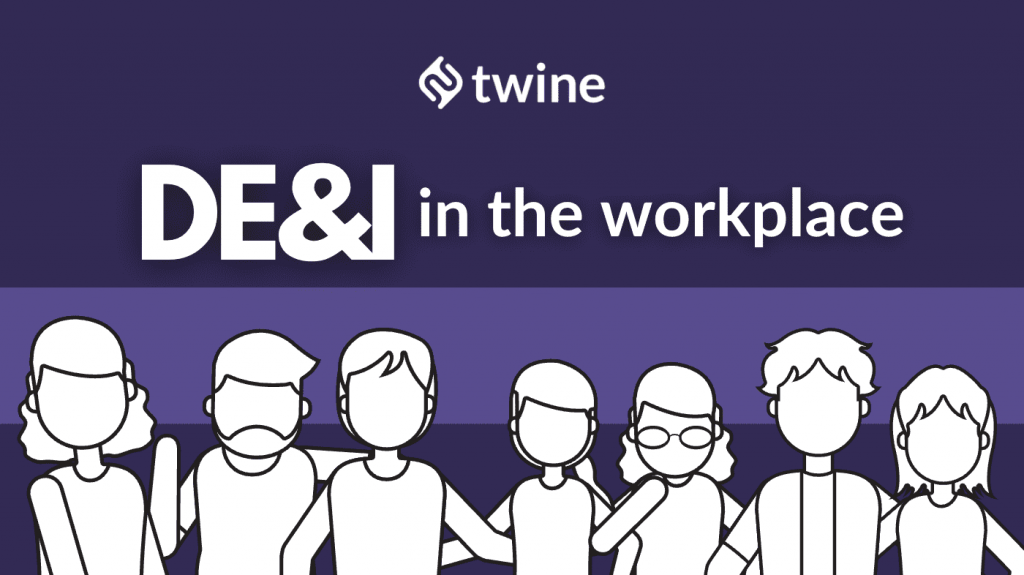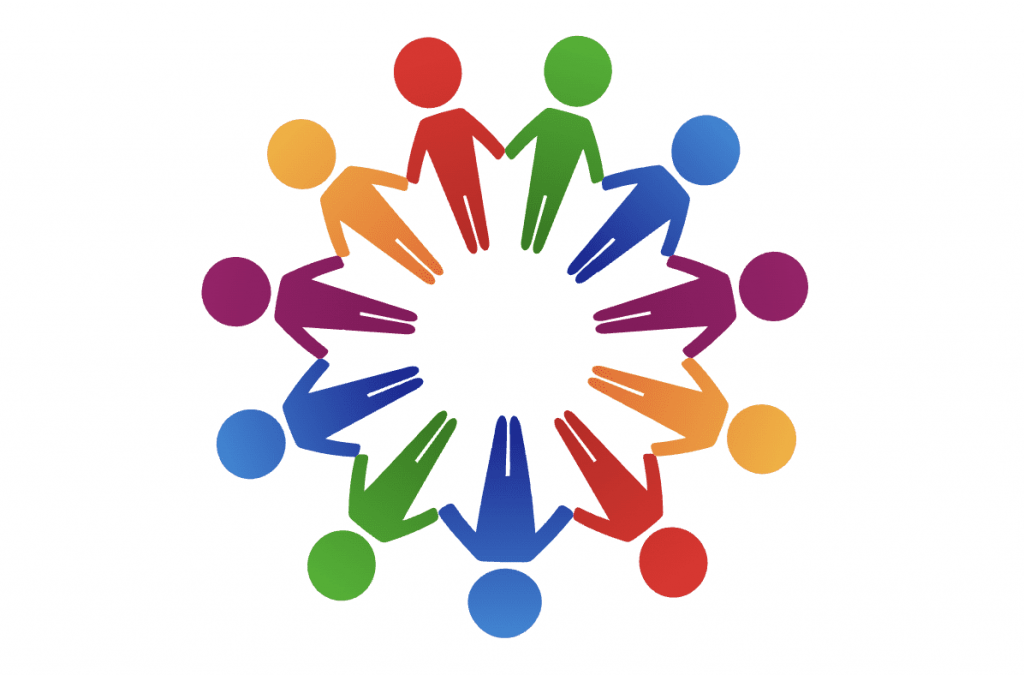
The importance of diversity within the workplace has never been more apparent. Diversity, equity, and inclusion are common words we hear together, but they are more than just a phrase. Each word speaks to distinct values:
- Diversity is the presence of differences that enrich our workplace, including but not limited to ethnicity, nationality, religion, socioeconomic status, age, gender, sexual orientation, and mental or physical ability.
- Equity is the fair treatment, access, opportunity, and advancement for all to succeed and grow.
- Inclusion refers to sharing power and ensures equal access to opportunities and resources.
Over the last several decades, the chasm between employees based on gender, orientation, and/or race has been revealed. Many companies have increased diversity in job hiring.
LinkedIn found that the number of people with the title “head of diversity” jumped 104% from 2015 to 2020, with “chief diversity officer” title increasing by 68% in that same period.
While hiring for diversity roles is a great start, an organization’s commitment to DE&I should be much more than that.
A diversifying workforce helps workplaces to evolve and succeed in today’s market. Diversity, equity, and inclusiveness have to become more than just optics and words.
Benefits of a diverse workforce

1. Diverse employees have different talents, experiences, and skillsets
In a diverse workplace, employees are exposed to multiple perspectives and worldviews. When these various perspectives combine, they often come together in novel ways, increasing creativity and innovation.
For example, one study found that inclusive companies are 1.7 times more likely to be innovation leaders in their industry. Another study found that the decision-making of diverse teams outperforms individual decision-making up to 87% of the time.
Simply put, the importance of diversity within the workforce brings in new perspectives and ideas. In a business world that changes constantly, innovation, creativity, and adaptability is becoming the key to success.
2. Workplace diversity improves financial performance
One survey by Boston Consulting Group found that companies with more diverse management teams earned 19% more revenue from innovation than their less diverse competitors.
Echoing similar findings, a report by McKinsey & Company found that companies with more ethnically diverse executive teams are 33% more likely to outperform their peers on profitability.
This shouldn’t particularly be a surprise as a diverse workforce encourages novel perspectives and ideas. In this day and age where adaptation and resilience are key, a diverse set of opinions can be incredibly beneficial.
3. Supporting DE&I initiatives helps attract and retain talent
Job seekers are looking for an inclusive workforce, and are understanding the importance of diversity.
Among American job seekers, 76% report that a diverse workforce is an important factor when evaluating companies and job offers.
Among underrepresented groups, 32% would not apply to a job at a company where the workplace lacks diversity. An additional 37% would not apply to a job at a company where there are disparities in employee satisfaction among different ethnic and/or racial groups.
“As a woman and a minority, it is super important for me to work in a place where I can find leaders that I can identify with and look up to. Seeing someone who looks like me in a leadership position gives me hope that I can too get there one day”.
Jessica Ulloa, Community Manager at MyPerfectResume.
The evidence is pretty clear: when it comes to employee retention, research shows that employees value diversity.
For employees, being able to trust that themselves, and their colleagues, will be treated fairly regardless of race, gender, sexual orientation, or age, is a game-changer. They are 9.8 times more likely to look forward to going to work, and 5.4 times more likely to want to stay at the company.
The bottom line? When employees don’t feel that their contributions and individuality are valued, they will start looking for an employer that does.
4. Higher employee engagement
Employees who feel a sense of belonging are more likely to be engaged in their workplace and their work. This is a proven fact.
Research conducted by Deloitte found that engagement is an outcome of diversity and inclusion. Moreover, companies with an engaged workforce are 21% more profitable – with 71% of managers feeling employee engagement is the most important aspect of organizational success.
With that in mind, ensuring a diverse and inclusive workplace should probably be your main priority.
5. Workplace diversity boosts a company’s brand and reputation
Diversity isn’t just about employees, it’s also important to your consumers.
Diversity in the workplace boosts a company’s brand, presenting a company as a more desirable place to work. In fact, organizations that are dedicated to building and promoting DE&I in the workplace are seen as good, and more socially responsible.
But, of course, companies have to push past optics. Words without action are meaningless, and candidates and employees know this.
For example, candidates tend to put the most trust in employee reviews: with over 65% of employees and job seekers trusting employees when it comes to understanding what diversity & inclusion really looks like. This increases significantly higher with senior leaders (19%), the company’s website (9%), and recruiters (6%).
In other words, companies have to turn their commitment to DE&I into action.
How to foster DE&I

For many companies, it is still the early days for enacting DE&I initiatives.
Many haven’t quite realized the importance of diversity, and are yet to make a change. But, there are several ways that can help your company foster these initiatives right away:
1. Revisit hiring practices
Hiring for ‘culture fit’ can be detrimental. Instead of assessing candidates on this aspect, organizations should assess candidates on ‘culture add’ using company values in interviews instead.
Using inclusive language in job descriptions – i.e. asking for referrals from diverse candidates, and building a brand that showcases diversity – are a few of many ways to push DE&I practices into the hiring process.
Blinding names on resumes can also be a great tactic. There have been numerous studies that suggest gender bias exists in the hiring process: one study found that the exact same resume can be perceived differently depending on the gender of the individual.
2. Make performance management more equitable and inclusive
Gender bias has been demonstrated numerous times; for instance, women are less likely to receive specific feedback tied to outcomes, while men often get a clearer picture of what they are doing well.
This bias can provide a major obstacle for women who want to advance their careers. Implementing continuous, 360-degree feedback is a crucial part of employee management.
Not only that, but bias prompts in performance management appraisals are a few of many performance management processes that can help support DE&I initiatives.
Many performance management solutions are also equipped with people analytics, which allows leaders to analyze feedback data. (Common analysis may include: which gender is receiving more feedback? Are there certain demographics that are receiving less positive/praise feedback and more developmental/negative feedback?)
Employee happiness will increase the more objective the hiring process becomes. Inclusive hiring can also help the company make better training and talent decisions, understanding the importance of diversity (i.e. promoting the right people at the right time).
3. Provide DE&I training
For many companies, putting together a DE&I strategy involves making a commitment to learning, adapting, and putting in the work.
There are many resources that can help organizations foster DE&I, whether it’s unconscious bias training, manager training, or collecting diversity data. As an employer, it’s your decision on what your organization needs most, and how to improve it.
4. Collect feedback
Yes, the final call is yours – but why not acquire useful feedback from your employees? After all, diversity can only begin with diverse opinions.
In current times, 3 out of 4 employees have concluded that they’d share their experiences on DE&I if they could do so anonymously. Your employees may want to get involved, but are afraid of identification, leading to even more bias in the process.
To help eliminate this worry, you can create a format that completely anonymizes individuals: e.g. pulse surveys or other free online tools. Organizations should routinely survey their employees and ensure that they are creating a space that allows them to do the best work.
Conclusion
The importance of diversity within our organizations, our companies, the fabric of our business DNA, is evident.
Our modern working world contains a diverse subset of humans that need (and want) to be accounted for. The rewarding journey ahead requires building and adapting our current work systems, to provide a workplace where people can contribute, thrive, and feel a sense of belonging.
Investing in a DE&I-filled workplace will be worth it.
Ready to hire? Our marketplace of over 410,000 diverse freelancers has the skills and expertise needed to skyrocket your business. From marketers to designers, copywriters to SEO experts – browse the talented bunch here!








